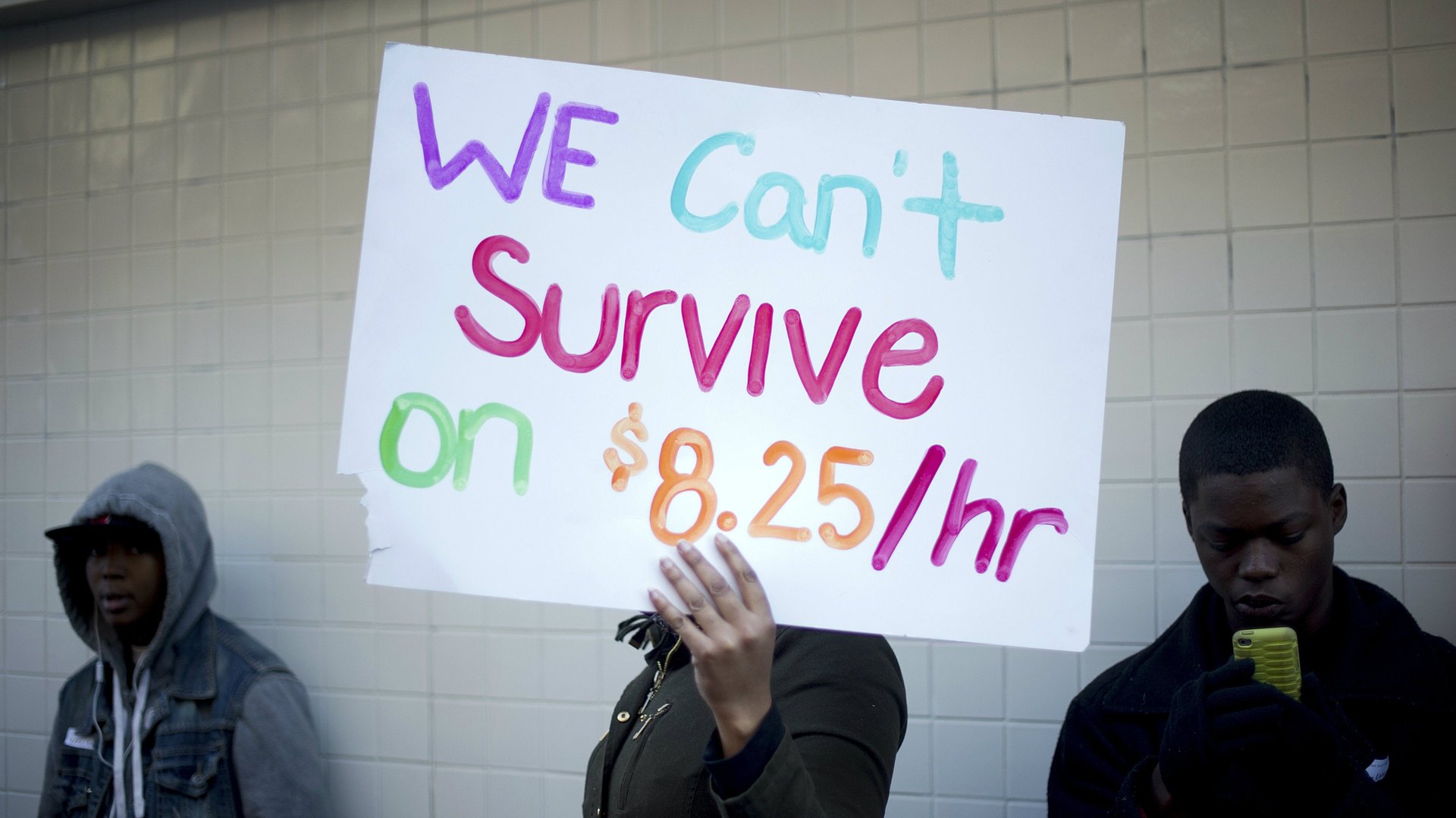Missouri and Arkansas just voted for huge minimum wage increases
Last night in the US, voters in Missouri and Arkansas voted to increase their minimum wages to, respectively, $12 per hour, a 53% increase in Missouri, and $11, a 30% increase in Arkansas, over the next few years. Eighteen other states have also increased their minimum wages, some by ballot box, others by legislation, in the last five years. Six of those states are increasing their minimum wages to $15. Missouri and Arkansas are notable because many of their residents work in low-wage jobs and the increases are so large. It is a bold experiment.


Last night in the US, voters in Missouri and Arkansas voted to increase their minimum wages to, respectively, $12 per hour, a 53% increase in Missouri, and $11, a 30% increase in Arkansas, over the next few years. Eighteen other states have also increased their minimum wages, some by ballot box, others by legislation, in the last five years. Six of those states are increasing their minimum wages to $15. Missouri and Arkansas are notable because many of their residents work in low-wage jobs and the increases are so large. It is a bold experiment.
The wage increases in Missouri and Arkansas are high for their economy. The median wage in Missouri is $16.86 per hour (the minimum wage is 70% of that), and in Arkansas it is $14.82 (the minimum wage is almost 75% of the median). Liberal economists argue the minimum wage should not exceed 50% of the median wage. So these increases are quite large.
Economists have a long history of studying what happens when the minimum wage is increased. For many years they assumed it would mean fewer jobs. But a few studies found that small minimum wage increases, when the economy is strong, can be beneficial and yield few adverse effects. Large increases in a struggling economy are less well understood. Preliminary evidence in Seattle suggests the large increase there, 37%, reduced workers’ hours. But the wage increases were enough to counteract less work for some, and experienced minimum wage workers ended up with more take-home pay. However, there was also evidence the higher minimum wage made it harder for inexperienced workers to get a job.
The Seattle experiment happened during a booming economy. If there’s a recession in the next few years, Missouri and Arkansas may experience worse results. Some argue a minimum wage that was too high for its struggling economy contributed to Puerto Rico’s economic troubles.
It is reasonable to argue in a country as rich as America that people should be paid an amount that spares them from living in poverty. This raises a question: Are low-skill workers underpaid, or does the value of their work to the employer fall short of their pay? The answer is not known, in large part because it varies with jobs and workers. Some workers’ production falls short of an acceptable wage, while others’ might exceed it. We don’t have a good understanding of where higher minimum wages lie relative to how productive low-skill workers are.
If the value of someone’s work is less than an acceptable wage level, who should make up the difference? Economists argue it should fall on everyone. They tend to support wage subsidies financed by taxpayers, through programs like the Earned Income Tax Credit. Others argue, and Missouri and Arkansas voters clearly agree, that it should fall on employers through minimum wages. The risk is, we don’t yet know how employers will respond.